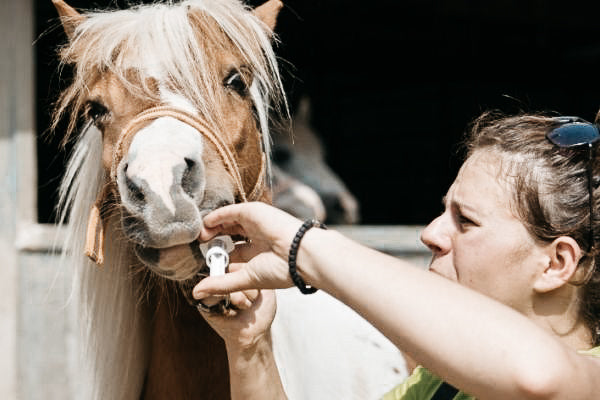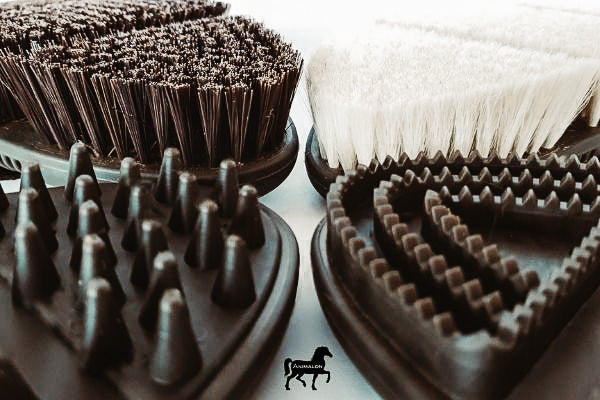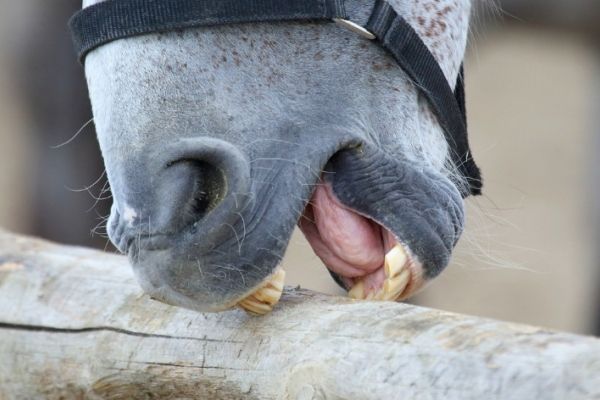
Worm treatment for horses
With the start of the grazing season, horse owners are dealing with a vexing issue of horse care: deworming horses. Worms can occur in horses not only in summer, but at all times of the year. However, the parasites are particularly active in autumn and spring and the pasture is the main place of transmission, which is why two dewormings per year make sense. The classic strategic worming treatment involves deworming twice more per year, so that the horse receives four worming treatments per year.
However, four worm treatments a year can put a lot of strain on your horse's organism, because in order to combat the pests, these treatments not only contain natural active ingredients, but are pure chemical bombs. For this reason, it is now often checked in the laboratory whether the horse is infected at all and a worm treatment is only given to the horse if necessary.
Signs that your horse could be infested with worms include listlessness and tiredness as well as the horse becoming emaciated and dull coat. In emaciated horses, tapeworm is often the cause. The tapeworm is ingested by the horse in the pasture and then attaches itself to the horse's intestinal wall. This parasite removes nutrients from the horse and uses them itself.
Gastric isopods use a similar principle. You probably know the little dots that often stick to horses' legs. These are the eggs of the gastropods, which are ingested by the horse when it licks itself in this area. In the stomach, these eggs attach themselves to the stomach wall, which is not a problem in small quantities, but if there is a high population of gastropods, it can trigger inflammation of the gastric mucosa. The horse then becomes tired and loses weight and sometimes has problems swallowing. If you discover the yellow eggs on your horse, you should cut them away if they cannot be brushed away during horse care.
If you decide to selectively send in fecal samples from your horse, the laboratory will look for all common parasites. These are small and large strongyles, roundworms, tapeworms and dwarf threadworms. Egg deposits and adult worms such as the awl tails and the larvae of the woodfly are also visible to the expert. What is important for horse care, however, is that all horses in a stable or facility must be checked and dewormed at the same time. This makes the selective deworming of horses complicated, especially in large stables.

It is of course easier to deworm the entire horse population four times a year as a preventive measure. However, care should be taken to change the active ingredient from time to time, as worms develop resistance to active ingredients. If you use ivermectin to raise pasture in spring, another active ingredient should eliminate the roundworms in July or August. Moxidectin or Pyrantel is a suitable alternative here. So always check which active ingredients the horse's worming treatment contains and make sure that you give your horse enough paste per weight. Nowadays it's very easy, the wormers are scaled by weight and can be adjusted to the exact weight with a ring.
Since worming a horse always puts a strain on the immune system, some horse owners swear by alternative deworming methods such as herbs and globules. However, there are no herbal mixtures that can actually kill endoparasites.
Homeopathy can also improve the horse's overall constitution, but it does not kill worms. When it comes to deworming horses, propolis is often seen as a suitable remedy, but even in this case no real deworming takes place. But it is a good remedy for wound treatment and the horse's immune system also benefits from it.

Conclusion:
When caring for your horse, you should always rely on a worm treatment for your horse, even if it contains active ingredients that are harmful to your horse's immune system. You can support your horse with alternatives, and of course selective administration of worm treatment is a good measure. Furthermore, pay attention to stable hygiene, do not keep too many horses in one pasture, clean it regularly as well as the stable and let cattle graze the pasture from time to time if you can
Discover more posts

Effective cleaning of your horse - How to do it right! You come to the stable after work/school and your darling looks at you mischievously from the paddock. But all that sparkles ar...
Continue reading
Cribbing on horses – interesting facts about the topic!
Let me tell you one thing in advance: It's not a pretty scenery, but ultimately it's not the end of the world either! It is not a real horse disease due to health problems! Let us rather descr...
Continue reading
